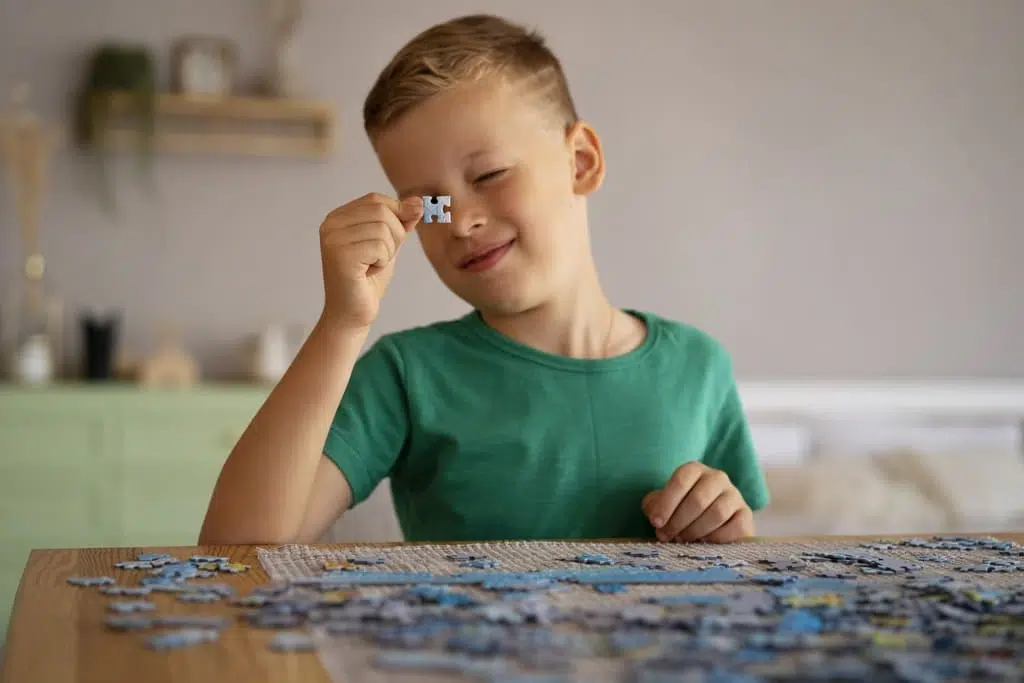What Does it Mean to be Neurodivergent?
Being neurodivergent is all about celebrating the diverse beauty of human minds and cognitive differences. Recognising that neurodivergent brains have a unique way of processing information and encompass a broad range of cognitive abilities with unique perspectives and strengths can radiate positivity and innovation.
In addition to exceptional problem-solving skills and unique communication models, neurodivergent people have enhanced creativity and pattern recognition skills.
Celebrating cognitive functioning that is not considered “typical” describes the concept of neurodiversity, which includes dyslexia, Autism, ADHD and a range of other neurodivergent conditions. If someone suspects they may be neurodivergent, numerous resources and support are available for them to access. Still, a diagnostic assessment for dyslexia is an essential part of the process, in which experienced specialists and teachers can confirm a diagnosis.
Dyslexia as a Neurodiversity
The main idea behind neurodiversity is to highlight the strengths that come with having a brain that functions differently. Instead of focusing on the challenges, neurodiversity recognises these differences as variations of the human brain and celebrates the diversity.
Like other neurodiverse conditions, dyslexia results from the way one’s brain processes information. It can impact how fluently one can read, spelling accuracy, memory and organisation. Researches indicate that there is likely a genetic link to dyslexia. Studies suggest that if a parent has dyslexia, their children have a 40% to 60% chance of also having dyslexia. Dyslexia is a prime example of the neurodiversity that exists within our society.
.

Dyslexia, like other neurodivergent conditions, is linked to unique strengths and perspectives that enrich our world. Dyslexic people possess brilliant puzzle-solving skills, strong visual memory, spectacular visual-spatial reasoning and are extremely imaginative.
Accepting and embracing the most beautiful minds who think differently and bring so much diversity and uniqueness to this world is a transformative approach.
Empowerment and Advocacy for Neurodivergent Individuals with Dyslexia
In order to empower dyslexic people, it is of great importance for everyone to develop a broad understanding of neurodiversity. This understanding leads to a culture that helps people use their unique power and reach their full potential in every aspect of life, including at school and the workplace.
Empowerment and advocacy are crucial for ensuring the inclusion and well-being of neurodivergent people and individuals with dyslexia. Dyslexic people, like other individuals with neurodivergent traits, possess unique strengths and abilities that should be celebrated and harnessed. By embracing these differences, we can promote a supportive environment and encourage dyslexic people to overcome challenges and thrive.
Advocacy plays a pivotal role in raising awareness about dyslexia and the specific needs of the dyslexic population. We at Leaf Complex Care prioritise advocating for the needs and rights of dyslexic individuals through our humanised care and progressive language. We understand that language plays a crucial role in shaping perceptions and experiences, and we aim to create an inclusive environment where everyone feels respected and valued.
Promoting Strengths and Talents Associated with Dyslexia

Welcoming a world where dyslexia is celebrated with extraordinary strengths and talents, we shift the narrative towards a more empowering approach. Dyslexia is associated with creativity, empathy, communication, design skills, observation, narrative reasoning and “big picture” thinking.
- Creativity – Dyslexic people often adopt creative expressions and solutions in a different way by thinking outside of the box
- Empathy – High levels of empathy combined with strong intuition are unique, compassionate traits
- Communication – Dyslexic people have strong communication skills and may express themselves easier verbally
- Design skills – Dyslexia often brings exceptional spatial awareness and pattern recognition skills, enabling people to create unique and innovative designs for graphics, structures, and buildings that may not have been considered. As a result, they can be groundbreaking innovators in their respective fields
- Observation – Dyslexic people have a remarkable talent for identifying the outlier within large amounts of visual information. British intelligence agencies leverage the unique skills of dyslexic individuals to analyse complex data in an impartial, rational, and analytical manner.
- Narrative Reasoning – The foundation of narrative reasoning lies in the memory of experiences (episodic memory). Dyslexic individuals often find it easier to learn and recall information through experiences.
- “Big Picture” Thinking – One of the strengths commonly associated with dyslexia is the ability to see the bigger picture. This skill makes dyslexic individuals great entrepreneurs and managers because they can overlook minor details and concentrate on what is truly important, utilising this ability throughout their lives.
Stigma and Misconceptions Surrounding Dyslexia
In the ongoing pursuit of creating a more inclusive and understanding society, it is crucial to address the persistent stigma and misconceptions surrounding dyslexia.
Adopting a progressive perspective can challenge outdated beliefs and misconceptions, promoting better understanding and a more compassionate and informed approach. Here we have some misconceptions revolving around dyslexia:
It’s just about reading challenges. – No, it’s not just about reading, like other neurodivergent conditions, such as ADHD or Autism, dyslexic people experience the world differently. When we say different, we don’t mean better or worse; we mean just different. Dyslexic individuals describe experiencing differences in all dimensions of life, including memory and organisation.
Dyslexia is a disease to be cured. – No, it’s not a disease, it is a neurological difference that can make certain areas of learning more challenging and is associated with many strengths.
Dyslexia is related to intelligence. – Dyslexia does not impact intelligence.
View Dyslexia Through a Neurodivergent Lens with Leaf Complex Care
We at Leaf Complex Care offer everyday support and care, build positive and strong connections and develop effective communication skills that lead to more independent lives for dyslexic people. Our support workers adopt humanised and progressive approaches and tailored strategies that promote diversity and inclusion for dyslexic people. We offer consistent support to people with learning difficulties and neurological differences.
Our support workers prioritise person-first language, focusing on the individual rather than the challenge. Personalised approaches, such as multisensory interventions, empower individuals with dyslexia and enable them to thrive in all aspects of their lives. Through our commitment to progressive language and personalised care, Leaf Complex Care contribute to the holistic well-being of dyslexic people.
We deliver our services across the UK, with offices in Bristol, Somerset, the Midlands and Slough.
Discover compassionate care for your loved one. Contact us today for the support and care dyslexic people deserve.


















